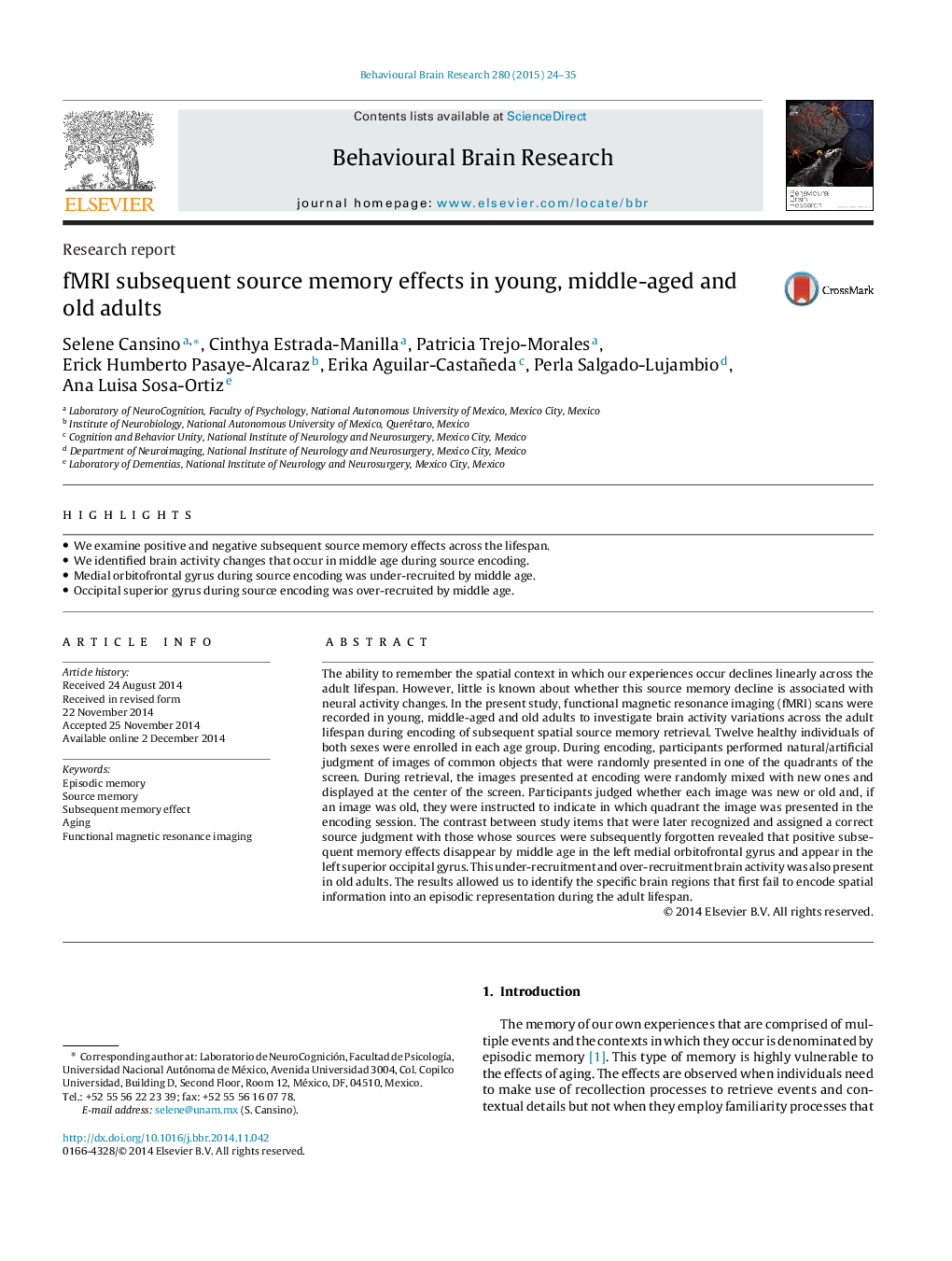| Article ID | Journal | Published Year | Pages | File Type |
|---|---|---|---|---|
| 6256836 | Behavioural Brain Research | 2015 | 12 Pages |
â¢We examine positive and negative subsequent source memory effects across the lifespan.â¢We identified brain activity changes that occur in middle age during source encoding.â¢Medial orbitofrontal gyrus during source encoding was under-recruited by middle age.â¢Occipital superior gyrus during source encoding was over-recruited by middle age.
The ability to remember the spatial context in which our experiences occur declines linearly across the adult lifespan. However, little is known about whether this source memory decline is associated with neural activity changes. In the present study, functional magnetic resonance imaging (fMRI) scans were recorded in young, middle-aged and old adults to investigate brain activity variations across the adult lifespan during encoding of subsequent spatial source memory retrieval. Twelve healthy individuals of both sexes were enrolled in each age group. During encoding, participants performed natural/artificial judgment of images of common objects that were randomly presented in one of the quadrants of the screen. During retrieval, the images presented at encoding were randomly mixed with new ones and displayed at the center of the screen. Participants judged whether each image was new or old and, if an image was old, they were instructed to indicate in which quadrant the image was presented in the encoding session. The contrast between study items that were later recognized and assigned a correct source judgment with those whose sources were subsequently forgotten revealed that positive subsequent memory effects disappear by middle age in the left medial orbitofrontal gyrus and appear in the left superior occipital gyrus. This under-recruitment and over-recruitment brain activity was also present in old adults. The results allowed us to identify the specific brain regions that first fail to encode spatial information into an episodic representation during the adult lifespan.
